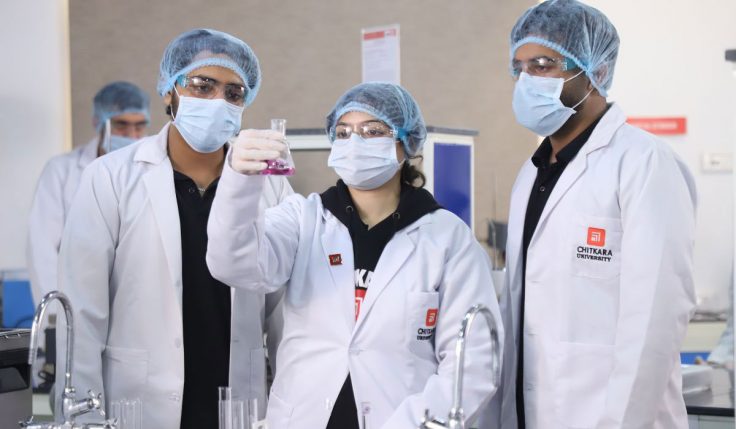In today’s light, an education in pharmacy can seem to expand endlessly: the depth and scope are growing at an incredible rate. At times, it can be quite bewildering finding the proper pathway in advanced pharmacy education-especially when considering such rapid strides. Therefore, the two primary avenues that could be considered by students aiming for advanced pharmacy education are the M.Pharm and the Pharm.D programs. Although these two programs give benefits that are different in many ways, prepare the students for various career tracks within the pharmacy sector, and offer different kinds of opportunities, knowledge of the respective differences can guide a student toward making decisions properly aligned with his or her professional aspirations.
Overview of M. Pharm and Pharm. D
M. Pharm (Master of Pharmacy)
The Master’s in Pharmacy is a postgraduate degree, which typically takes two years to complete. It equips students with special, mainly pharmaceutical knowledge mainly in areas such as pharmacology, pharmaceutical chemistry, pharmaceutics, and pharmacy practice. Its course is designed for those who intend to pursue research or academic spheres. Generally, M. Pharm focuses on the theoretical and practical fields of drug design, development, and manufacture.
Pharm. D (Doctor of Pharmacy)
A Doctor of Pharmacy degree is the professional doctoral level which lasts generally six years. This consists of five years of academic studies and one year as an internship or practical training. The program ensures that students will be able to practice clinically and makes them work directly with patients, health care providers, and communities. On the other hand, the M.Pharm and the Pharm.D or Doctorate in Pharmacy provide a skill of delivering patient care and managing medication.
Course Structure and Curriculum
M.Pharm
Duration: Two years
Focus Areas: M. Pharm is academically and research-focused, with considerable emphasis on pharmaceutical sciences. Projects, thesis work, and research papers are an integral part of the curriculum.
Specializations: Highly specialized areas that span pharmacology, medicinal chemistry, pharmaceutics, and drug regulatory affairs.
Career Outcomes: Generally, the students enter into the pharmaceutical industry to begin a career in research and development, quality control, academia, and regulatory affairs.
Pharm. D
Duration: Six years, including internship.
Focus Areas: The Pharm.D program mainly focuses on clinical practice, drug therapy management, and patient care. It involves training in settings of healthcare with real-world applications.
Clinical Experience: Comprehensive hours of practical experience in hospitals and the community essentially make the graduates very ready for patient interaction.
Career Outcomes: Graduates primarily become clinical pharmacists and may also become hospital pharmacists or practice in a healthcare setting offering medication therapy management and patient counseling.
Choosing the Right Track: What to Pursue
Career Ambitions: If you are an avid researcher or like pharmacology development or academia, then M.Pharm is the pick for you. But if it is clinical practice and dealing with patients that fascinates you more, then Pharm.D is what you should pursue.
What to Study in College: Reflect which curriculum will suit your interest more–scientific research and development or clinical and therapeutic applications.
Industry Demand: Look at the demand in your area or desired place of work. In some areas, Pharm.D graduates would need even more scope in clinical fields, whereas M.Pharm graduates might thrive in the pharmaceutical industries.
Time Commitment: The time taken for Pharm.D will be more than two years and might require a longer period of commitment as well in comparison to two-year M.Pharm course duration. You need to determine whether you are ready and have sufficient time for such commitments.
Professional Recognition: Select the degree that offers professional recognition and career advancement in your field of interest. In most countries, Pharm.D is considered a prerequisite to become a licensed pharmacist.
Conclusion
These M. Pharm and the Pharm. D degrees offer one a good career route that can lead into employment. A decision like this should take into account career goals, areas of interest, and where one would make a difference the most. The M. Pharm or the research and innovations that it offers. At the other end, it is the same with a Pharm.D-they both end at making great contributions to the healthcare outcome.
Only with an awareness of the distinct qualities of each program can you orient your education toward meeting professional goals so as to make sure that your pharmacy career is a rich and fulfilling one.
M.Pharm vs. Pharm.D at Chitkara University: Which Path Should You Choose for Your Pharmacy Career?
Choosing between the Master of Pharmacy (M. Pharm) and Doctor of Pharmacy (Pharm.D) programs is a very important decision for ambitious pharmacists who wish to achieve the best results on their professional paths. The M. Pharm and Pharm.D programs at Chitkara University are designed with contrasting career objectives in the challenging field of pharmaceutical sciences. Here, we shall go into details about each program to better serve the choice-making purposes.
Doctor of Pharmacy (Pharm.D) – Post Baccalaureate
Overview of the Program:
The Pharm.D (Post Baccalaureate) program of Chitkara University is tailored exclusively for B.Pharm graduates who wish to shift towards clinical pharmacy and healthcare services. The postgraduate professional doctoral degree mainly focuses on the development of pharmaceutical care and ensuring optimized health-based patient outcomes.
Course Duration:
6 years, with 5 years of intense academic learning and a mandatory internship period for 1 year.
Program Structure and Opportunities:
Internship: A year’s industrial training in the clinical management of in-patients in a hospital setting that imparts practical skills.
Curriculum: A well-rounded exposure to pharmaceutical sciences with an emphasis on patient-centered care and drug therapy management.
Placement: Placement in some of the best pharma companies and hospitals, Abbott, Cipla, Apollo Hospital, Novartis, and Pfizer assured for graduates.
Eligibility Criteria: When the aggregate earned is 50% or more. Here, a B.Pharm candidate enters the course in the 4th year of graduation and continues up to the 6th year.
Career Prospects: The graduates can work as hospital pharmacists, clinical pharmacists, or even community pharmacists. The scope extends further into pharmacoeconomics and governmental agencies.
Postgraduate Course: Master of Pharmacy
Course Description:
Chitkara University provides a rigorous two-year M. Pharm program for the grooming of professionals for top-notch research and leadership positions in pharmaceutical and biotechnology industries.
Duration:
2 years including six months of internship for practical industrial exposure.
Course Structure and Exposure
Specializations: M.Pharm (Pharmaceutics), M.Pharm (Pharmacology), M.Pharm (Pharmacy Practice), M.Pharm (Drug Regulatory Affairs), and Pharmaceutical Chemistry.
Curriculum: In-depth pharmaceutical sciences with hands-on laboratory research together with drug development and clinical applications.
Placement: Strong industry connections and opportunities in GlaxoSmithKline, Sun Pharma, Cadila Pharmaceutical Limited, Glenmark Pharmaceutical, Alembic Pharmaceuticals, etc.
Eligibility Criteria: B. Pharm degree from a reputed university with an aggregate of 50% in minimum. Students are selected through entrance exams and personal interview. Pharmacy Council of India provides stipends for GPAT qualified students
Career Prospects
Graduates are eligible for positions of analytical chemists, lab technicians, drug inspectors, research associates, etc. They may also opt for further research by way of doctoral studies.
Both Pharm.D and M.Pharm programs at Chitkara University meet the specific needs of a career aspirant. You may be interested in the clinical environment and more patient care or be inclined towards research and pharmaceutical development; the training you’ll get at Chitkara University will empower you to do just whatever you may aspire for. It is this understanding that helps in aligning your education with professional ambitions and shaping out a successful profession in pharmacy.






